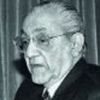Codes of conduct needed in politics
A code of conduct cannot be a cure-all. Crimes continue to be committed despite the existence of a penal code on the statute book.

Every now and then one is treated to clamours for codes of conduct in various fields of governance. They draw reactions ranging from sneer to reverence, as if a code would be a panacea for all ills. Extreme reactions distort calm public discussion of important issues of policy. A code of conduct cannot be a cure-all. Crimes continue to be committed despite the existence of a penal code on the statute book. Nonetheless, a code of conduct is not only desirable but indispensable in areas where the rules are unclear or nonexistent. This is subject to a condition: there must be an effective machinery for its observance and a credibly deterrent punishment for its violations.
Shortly after Jawaharlal Nehru’s death in May 1964, Prime Minister Lal Bahadur Shastri published the Code of Conduct for Ministers that said: “No minister should personally, or through a member of his family, accept contributions for any purpose, whether political, charitable or otherwise. If any purse or cheque intended for a registered society, or a charitable body, or an institution recognised by a public authority, or a political party is presented to him, he should pass it on as soon as possible to the organisation for which it is intended; and associate himself with the raising of funds except for the benefit of a registered society, or a charitable body, or an institution recognised by a public authority and a political party. He should, however, ensure that such contributions are sent to a specified office bearer, etc of the society or body or institution or party concerned and not to him.”
The draftsman surely knew, by 1964, that a minister enjoys a certain clout far in excess of what his counterpart in the West does. People fawn over him as he does over his Prime Minister. The rules should forbid ministers from collecting funds completely. This ridiculous code ends by making the Prime Minister “the authority for ensuring the observance” of it. Which Prime Minister would pull up his minister for collecting funds for the party to which they belong? The authority vested in a politician has been used for political ends. In the case of a chief minister, the Prime Minister would act in concert with the union home minister; in the case of a state minister, the “authority” would be the home minister and chief minister.
Federalism was deformed by Prime Ministers to control chief ministers in the opposition. This code is devoid of legality and morality.
In contrast, in the House of Commons in 1952, Winston Churchill revealed detailed and precise rules that would govern a person’s relations, on appointment as minister, with his business, whether as proprietor, partner or director in a company.
In 1992, the John Major government published a more detailed document on “questions of procedure”. In 2005, it was revised and reissued as the Ministerial Code. One rule says: “Ministers must ensure that no conflict arises, or appears to arise, between their public duties and their private interests; ministers should avoid accepting any gift or hospitality which might, or might reasonably appear to, compromise their judgement or place them under an improper obligation; ministers must keep separate their roles as minister and constituency or regional members; ministers must not use government resources for party-political purpose. They must uphold the political impartiality of the Civil Service and not ask civil servants to act in any way which would conflict with the Civil Service Code.”
At a time when civil servants are under pressure from ministers to act as their political aides, the Civil Service Code acquires added relevance.
What is the duty of a civil servant who becomes aware that ministers are concealing politically embarrassing facts from the public, or are misleading parliament and the public with false information, or are otherwise acting in a way that is constitutionally improper? He or she is required to act in accordance with the Civil Service Code; first, bringing his or her concerns to the attention of senior officers within the department and, if this should not resolve the matter, reporting to the Civil Service commissioners.
The commissioners have powers of investigation and may recommend redress. They publish an annual report that gives a general account of appeals made to them under the code, and they may make special reports on appeals, eg, if the government should refuse to act on their recommendations.
Laws, rules and conventions spring from the society that they seek to govern. Little or no reform can be expected in a society that is polarised and where political morality is absent. President Donald Trump freely violates more than one code.
By arrangement with Dawn
